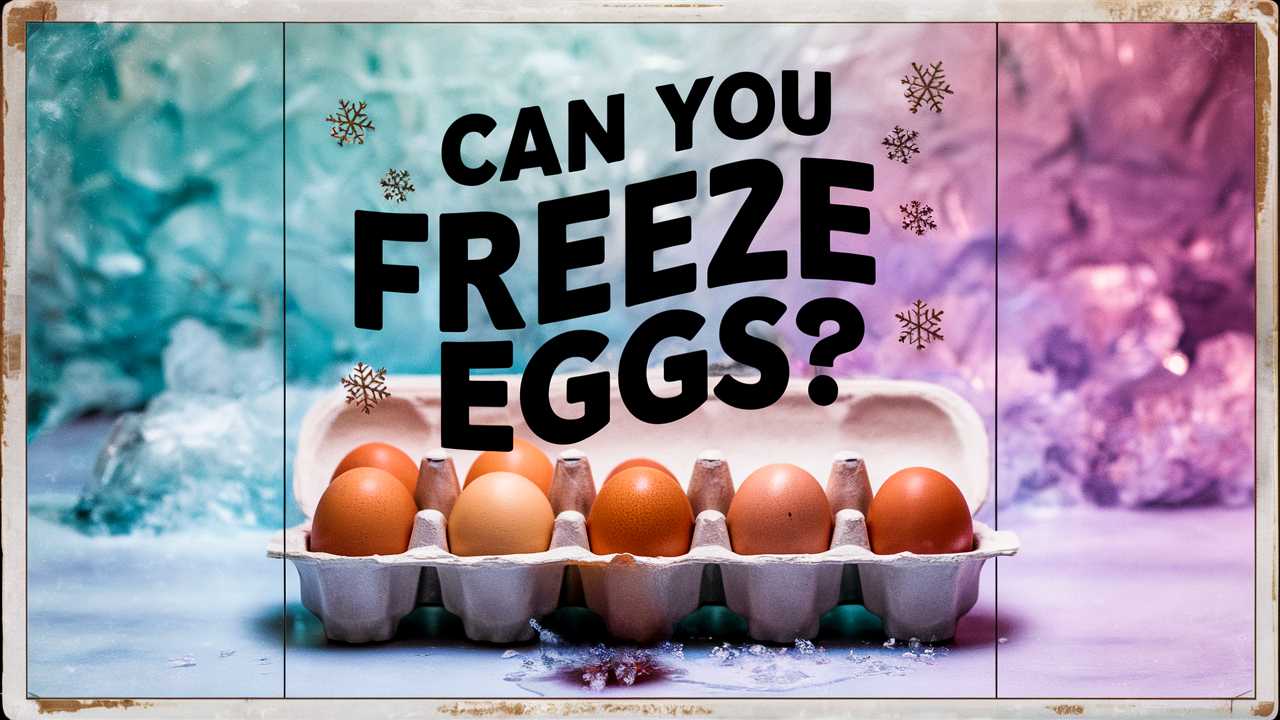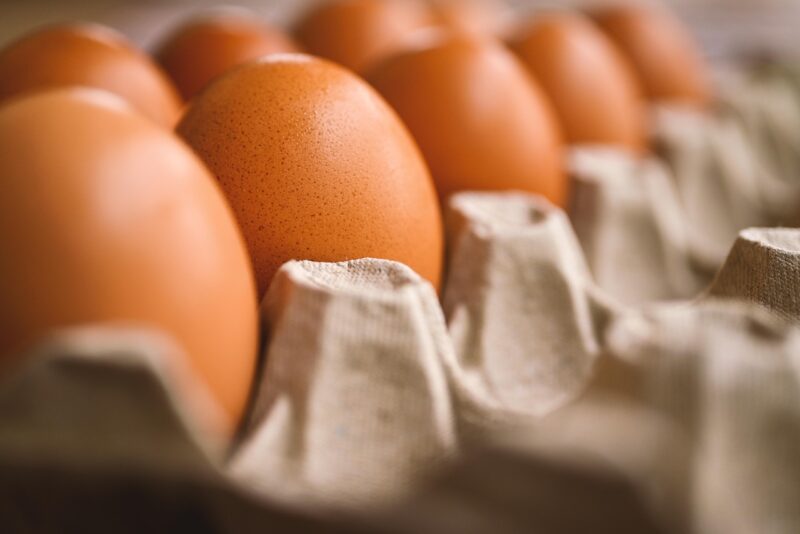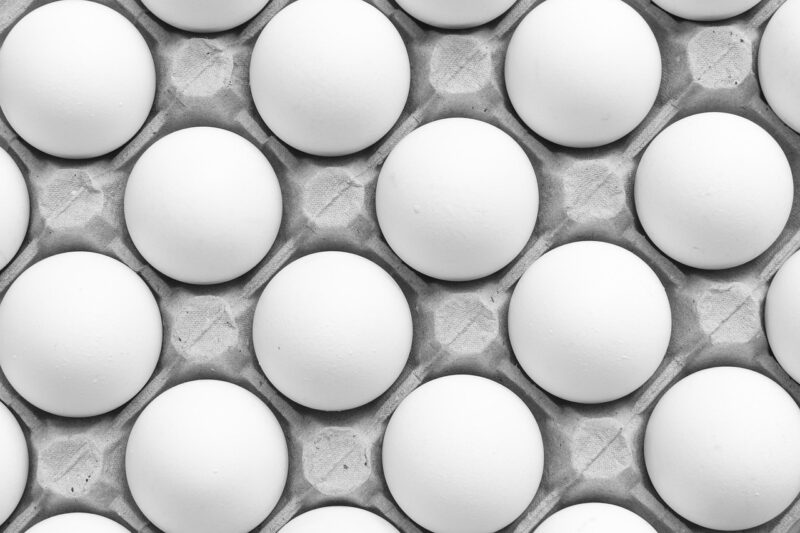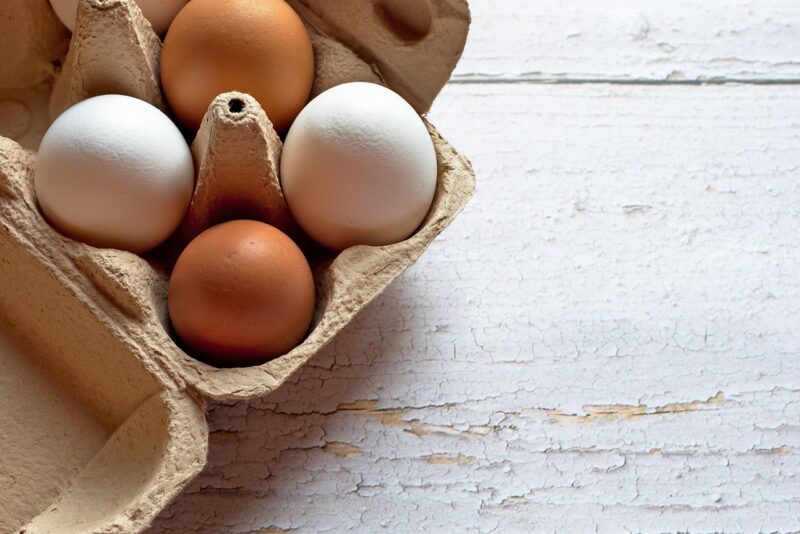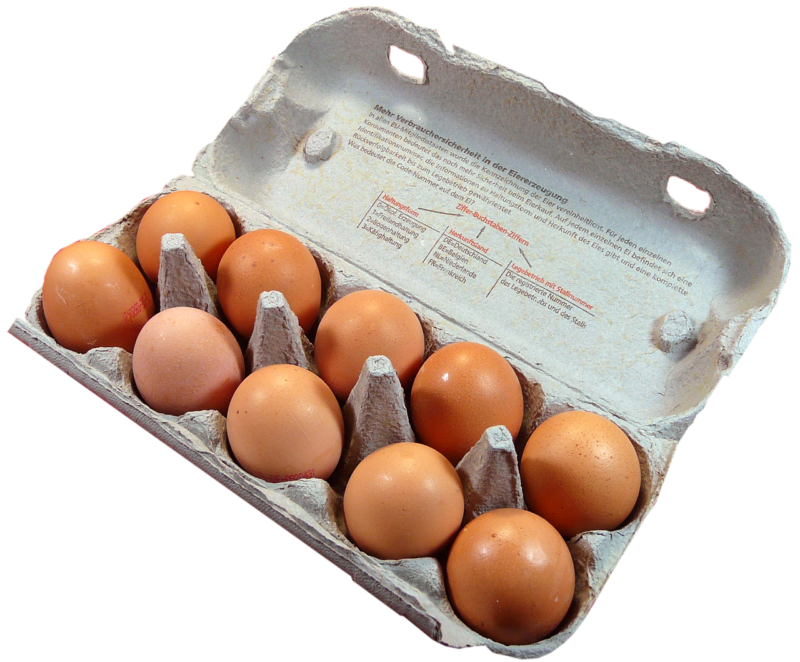Eggs are a staple in many kitchens, prized for their versatility and nutritional value. But what if you find yourself with more eggs than you can handle? Perhaps you’ve bought in bulk or had a sudden egg-laying surge from your backyard hens.
The question arises: can you freeze eggs? This post will explore everything you need to know about freezing eggs, from the process itself to practical tips and creative uses for your frozen treasures.
Understanding the Basics of Egg Freezing
Before we jump into the ‘how’ of freezing eggs, let’s clarify the ‘why.’ Freezing eggs can be a practical solution for reducing food waste and ensuring you have eggs on hand for your culinary adventures. They are not only capable of being frozen, but when done correctly, they maintain their quality and flavor longer than you might expect.
What Happens When Eggs Freeze?
Eggs consist of water, protein, and fat, with the white made up mostly of water and the yolk containing both fat and protein. When you freeze eggs, the water inside can expand, which might lead to a texture change when thawed. However, if you follow the right processes, you can effectively freeze eggs while minimizing changes in texture and flavor.
How to Freeze Eggs: The Step-by-Step Guide
If you’re ready to give it a try, here’s a practical guide on how to freeze eggs efficiently.
1. Assess Your Eggs
Before freezing, check the quality of your eggs. Ensure that they are fresh and free from cracks. If you’re unsure, the float test can help: fresh eggs sink; if they float, it’s best to discard them.
2. Choose Your Method
There are three primary ways to freeze eggs:
Whole Eggs
Crack the eggs: In a bowl, crack your eggs open.
Beat gently: Stir gently with a fork or whisk until combined but not frothy.
Portion out: Use ice cube trays for easy portioning. Pour the beaten eggs into individual compartments, filling them to about three-quarters full to allow for expansion.
Freeze: Place the tray in the freezer until solid, which usually takes a few hours.
Store: Once frozen, pop the egg cubes out and transfer them to a freezer-safe bag or container. Label and date the bag.
Separating Yolks and Whites
Separate the eggs: If you need yolks or whites separately, crack the eggs and separate them.
Beat yolks: For yolks, beat them slightly before freezing to prevent gelling.
Pour into trays: Use ice cube trays as described above.
Freeze and store: Once set, store each part in a labeled container.
Cooking and Freezing
Another method is to cook eggs before freezing, which can be particularly useful for meal prep.
Scramble: Cook your eggs to your liking, scrambling them gently.
Allow to cool: Let them cool to room temperature.
Portion: Divide small portions into freezer bags.
Freeze: Lay flat for easier storage and freeze.
Thawing and Using Frozen Eggs
How to Thaw
When you’re ready to use your frozen eggs, the thawing process is critical to retaining quality:
Refrigerator Method: Move the desired number of egg portions to the refrigerator for several hours or overnight.
Cold Water Method: For a quicker option, submerge the sealed bag of frozen eggs in cold water for about 30 minutes.
Avoid microwaving frozen eggs, as this can lead to uneven heating and an altered texture.
Uses for Frozen Eggs
Frozen eggs are incredibly versatile once thawed:
Baking: Use thawed eggs in cakes, muffins, or pancakes without altering the recipe.
Cooking: Scramble them for breakfast or make frittatas.
Soups and Sauces: Incorporate into soups or sauces for added richness.
Homemade Pasta: Use frozen eggs to enhance your next homemade pasta dish.
Nutritional Considerations
Freezing eggs doesn’t significantly change their nutritional profile. Eggs are rich in protein, riboflavin, and selenium, no matter the state they’re in. However, consider that the freezing process primarily affects the texture rather than the nutrition.
The Impact on Protein Structure
While some may wonder if freezing alters the protein structure of eggs, rest assured that the primary change happens in the water content and protein interaction. This alteration may lead to a slightly different texture once thawed, but they remain a reliable source of nutrition.
Tips for Best Results
Here are a few extra tips to ensure your frozen eggs are as high-quality as possible:
Labeling is Key: Always mark the date and number of eggs in your container. Eggs can generally be stored for up to one year in the freezer, but freshness will decline over time.
Use Air-Tight Containers: Prevent freezer burn by ensuring your storage bags or containers are airtight.
Experiment: Don’t be afraid to test out different freezing methods. You might find a technique that works best for you.
Common Misconceptions
There’s often confusion surrounding which parts of the egg can be frozen. Some common misconceptions include:
Eggs in Shell: While you can technically freeze eggs in shells, it is not recommended due to the risk of cracking and moisture loss.
Raw vs. Cooked: Many people think all forms of raw eggs cannot be frozen. In fact, both raw and cooked eggs freeze well!
Practical Considerations for Freezing Eggs
Why Not to Freeze Eggs in Shells
Freezing whole eggs in their shells is tempting. However, as water expands, it can lead to cracking and a messy freezer. Avoiding this not only saves hassle but also keeps the process cleaner and more efficient.
Freezing Limitations
While egg freezing offers many possibilities, it’s worth noting that certain egg products, like hard-boiled eggs, do not freeze well. The texture changes significantly, leading to an undesirable experience if you choose to thaw them.
Fun and Creative Uses for Eggs
Eggs can be more than just breakfast; they can take center stage in countless dishes! Here are some fun and innovative ways to use frozen eggs:
Smoothies: Their protein content makes them a great addition to nutrient-dense smoothies.
Homemade Ice Cream: Use frozen eggs to whip up a rich, homemade custard for ice cream.
Breakfast Burritos: Make a bulk batch of breakfast burritos with scrambled frozen eggs for easy on-the-go meals.
Final Thoughts
So, can you freeze eggs? Absolutely! With the right techniques, you can enjoy the advantages of eggs long after their initial purchase. They can be a valuable addition to your meal planning, reducing waste and offering culinary versatility.


